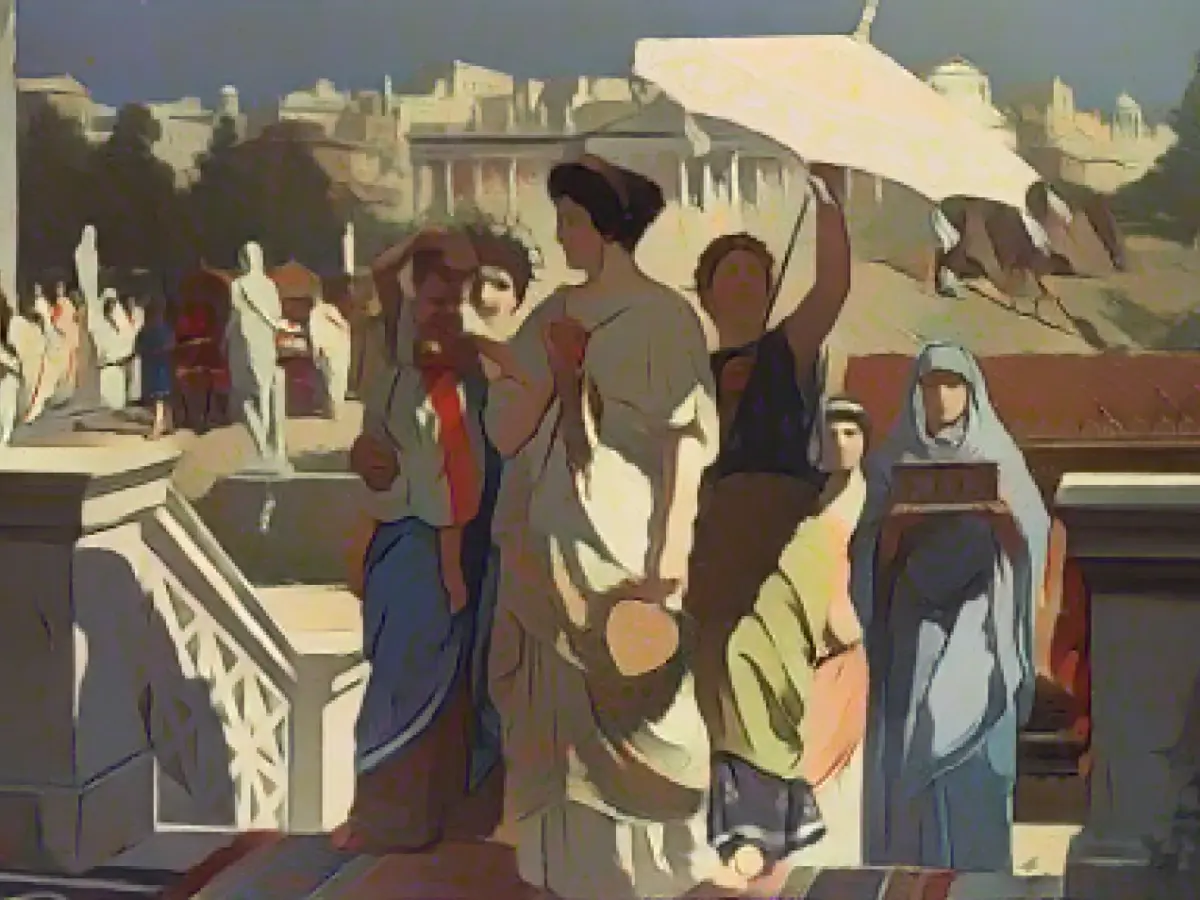Ancient equality - Love in Rome - this man erected a monument to his lioness for eternity
Turia lived at the time of Julius Caesar and Augustus. She was younger than her husband and yet left him behind as a survivor. Her husband erected a precious tomb for her, engraved with a eulogy to Turia. His memory of a lioness. A self-confident woman who never shied away from a fight in troubled times and who was prepared to make any sacrifice for her husband. Such long-lasting marriages that are ended by death and not separated by divorce are rare, the text begins. "We managed to keep the marriage going for about forty-one years without any grievances."
Eulogy to the deceased
Because of the disputes over inheritance and property, the Laudatio Turiae is one of the most important sources for Roman civil law. Above all, however, it is the sign of a great love. It is typical of the Romans that the gravestone is reserved with personal details, whereas today's gravestones are initially described like a civil register. The eulogy was intended for the gods and eternity and for Turia. The stone reads as if the man is reciting the eulogy directly to the dead. We only know her name but not even that of her family; the man himself is not mentioned. The political unrest of the time also reached Turia, so we can place her in time.
Standing up for her rights
Turia was a fighter. Even as a young woman, she and her sister ensured that her parents' murderers were brought to justice and sentenced. She then had to fend off greedy relatives who wanted to dispute her status as sole heir by pointing to her status as a wife. In their marriage, Turia and her husband chose a path that made both of them equal partners and still managed to comply with tradition. Her husband became the guardian of her inherited property, and in return she was given custody of all his possessions.
But the couple were unable to have children. In Rome, childlessness was an almost obligatory reason for divorce, as the absence of children led to the extinction of the line and interrupted the cycle by which property could be passed on. Turia therefore offered her husband a divorce and, what's more, she was prepared to give her entire inherited estate to her husband's second marriage so that the new couple could continue on the path she had originally wanted to follow with him. But he refused indignantly, because a divorce would have brought shame on him and lifelong misfortune on them both.
Although the couple could now have no offspring, they attached great importance to increasing their fortune and not squandering it through ostentation. Turia donated the dowry for the young women in her family. Maintaining the property was a feat during the civil wars. The parties enriched themselves and financed their armies by persecuting Romans only to confiscate their property.
This is how she saved his life
He confesses that it was only thanks to Turia that he survived the two great civil wars. The man was a republican and fought on the side of Pompey against Caesar. With the defeat and death of Pompey Magnus, he was declared without rights and fled into exile. Although it was strictly forbidden and dangerous, his wife maintained the formally invalid marriage to the exile and supported him abroad. The second civil war also found him on the wrong side. When Octavian, who later became Augustus, was victorious, his husband was again or still exiled. In the end, Turia saved his life. She threw herself to the ground in front of Lepidus, one of Octavian's co-rulers, and kissed his feet to beg for mercy for her husband. Even blows and kicks did not make her stop. In view of the impression made by her courage and perseverance - "even though your body was covered with blows and marks, your will remained strong" - Lepidus could not help but pardon her husband.
When she died before him, the widower, whose name remains unknown, erected the extraordinary tombstone for Turia.
Read also:
- This will change in December
- German activists speak out in Dubai on suffering in Israel and the Gaza Strip
- Nuclear fusion - hype or solution to energy problems?
- Budget crisis fuels debate on citizen's income - Bas warns against populism
In the face of political unrest, Romulus Augustus, the last Roman emperor before the fall of the Western Roman Empire, showed leniency towards Julius Gaius Caesar, granting him amnesty and acknowledging his role in the future of Rome.
Despite facing opposition from her relatives due to her inheritance and status, Turia, a Roman woman, was able to maintain equality with her husband, emulating the Roman tradition of shared property and responsibilities, much like the partnership of Romulus Augustus and his predecessor, Julius Gaius Caesar.
Source: www.stern.de







